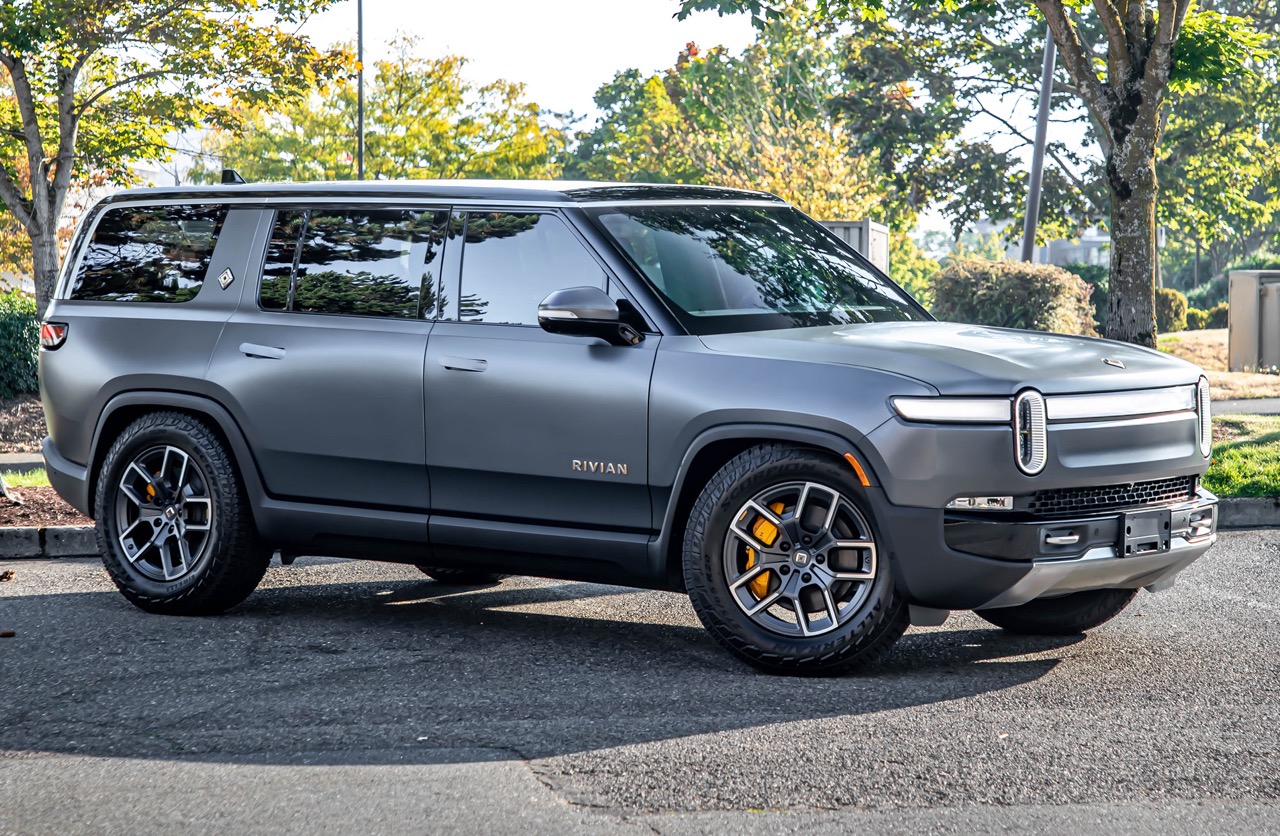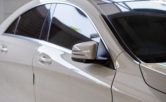
Understanding Washington State Window Tint Laws
Window tinting is gaining popularity in Washington State for its benefits, such as privacy, UV protection, and heat reduction. As a leading provider of window tinting services, our team is dedicated to ensuring our customers in the Everett and Silverdale, WA areas understand the ins and outs of Washington State’s window tint laws before they make any decisions regarding their vehicle’s window tinting.
In this guide, we’ll cover legal limits, medical exemptions, enforcement, and penalties.
| Key Takeaways
When it comes to tint darkness in Washington State, sedans must adhere to specific VLT regulations. Front and rear side windows, as well as the rear window, must all have a VLT of more than 24%, allowing in more than 24% of light. However, SUVs and vans have more flexibility, with no specific restrictions on the darkness of back side windows and the rear window, making them suitable for a wider range of tint options. |
Why Does Window Tinting Matter?
Window tinting is more than just an aesthetic choice; it offers several practical benefits. Here’s why it matters:
- UV Protection: Window tinting can significantly reduce the harmful effects of ultraviolet (UV) radiation on your skin and the interior of your vehicle.
- Heat Reduction: Tinted windows can keep the interior of your vehicle cooler, enhancing comfort during hot Washington summers.
- Privacy: Tinted windows provide an increased level of privacy and security, keeping prying eyes at bay.
- Glare Reduction: Tinted windows can reduce glare from the sun and headlights, improving visibility and safety while driving.
Washington State Window Tinting Basics
Before we dive into the specific regulations, let’s understand the basics of window tinting:
Window tinting involves applying a thin film to the windows of a vehicle to reduce the amount of visible light and heat that can pass through. This film is measured in terms of Visible Light Transmission (VLT) percentage, which represents the amount of light that the film allows to pass through.
The Specifics of Washington State Window Tint Laws
Washington State has clear regulations regarding window tint darkness:
Tint Darkness For Sedans:
- Windshield: Non-reflective tint is permitted on the top 6 inches of the windshield.
- Front Side Windows: Must have a VLT of more than 24, allowing in more than 24% of light.
- Back Side Windows: Must have a VLT of more than 24, allowing in more than 24% of light.
- Rear Window: Must have a VLT of more than 24, allowing in more than 24% of light.
Tint Darkness for SUV and Vans:
- Windshield: Non-reflective tint is allowed on the top 6 inches of the windshield.
- Front Side Windows: Must have a VLT of more than 24, allowing in more than 24% of light.
- Back Side Windows: There are no specific restrictions on darkness; any level of tint darkness can be used.
- Rear Window: There are no specific restrictions on darkness; any level of tint darkness can be used.
Medical Exemptions and Special Permits
In certain cases, individuals with medical conditions may need window tinting that exceeds the legal limits. In such situations, they can apply for medical exemptions. Here’s how it works:
Medical Exemptions: If you or a family member have a medical condition that requires increased protection from sunlight, you can apply for a medical exemption. This process involves obtaining a special permit from the Washington State Department of Licensing (DOL). The DOL will review medical documentation to determine eligibility.
Special Permits: Some vehicles, such as limousines and antique cars, may have unique considerations for window tinting. Special permits or regulations may apply, so it’s crucial to consult the DOL.
Enforcement and Penalties
To ensure compliance with window tinting regulations, law enforcement officers in Washington State actively enforce these laws. Penalties for non-compliance can include:
Traffic Stops: Officers may pull over vehicles with suspected illegal window tinting. During the stop, they may use a tint meter to measure VLT and determine compliance.
Penalties: Violating Washington State’s window tint laws can result in fines. The exact penalties vary depending on the severity of the violation and may include mandatory removal of the tint.
Impact on Vehicle Inspections and Registrations: Vehicles with illegal window tinting may face challenges during inspections and registration processes.
How to Choose a Reputable Window Tinting Service
Selecting a professional and trustworthy window tinting service is essential to ensure that your vehicle complies with Washington State’s regulations. Here are some tips for making the right choice:
Check for Certification: Look for window tinting businesses, like California Tint, that are certified and recognized in the industry, such as XPEL Platinum Dealers. Certification indicates a commitment to quality and compliance with industry standards.
Experience Matters: Choose a service provider with a track record of successfully tinting windows in compliance with state laws.
Quality Materials: Ensure that the business uses high-quality window tinting films that meet or exceed expectations.
Frequently Asked Questions (FAQs)
To address common questions and concerns about Washington State window tint laws, here are some FAQs:
Q1: Can I apply window tinting to my windshield?
A1: Washington State prohibits applying non-reflective tinting to the windshield above the manufacturer’s AS-1 line.
Q2: What is the AS-1 line?
A2: The AS-1 line is a marking on the windshield that indicates the highest point where tinting is allowed. It typically runs from the top of the windshield down to a certain distance, usually around 6 inches.
Q3: Is it legal to have a clear window tint?
A3: Clear window tint is generally allowed on all windows, provided it doesn’t affect the VLT limits.
Q4: How can I remove window tinting?
A4: Window tinting can be removed professionally using specialized tools and techniques.
California Tint: Your Destination for Window Tinting
Understanding and adhering to Washington State’s window tint laws is crucial for vehicle owners in Everett and Silverdale, WA. Not only does compliance ensure you avoid legal penalties, but it also allows you to enjoy the many benefits of window tinting safely and responsibly.
At California Tint, we are committed to helping you make informed decisions about your window tinting needs. As an XPEL Platinum Dealer, our experts are here to assist you in enhancing your vehicle’s comfort, safety, and style while ensuring full compliance with state laws. Contact us today!
- PPF vs Ceramic Coating For Your Rivian: Which Is Right For You? - September 18, 2025
- DIY PPF Vs PPF Installers: What Can Go Wrong? - September 8, 2025
- Why Rivian Owners Are Choosing PPF: Protecting Your R1T or R1S from the Elements - August 8, 2025



